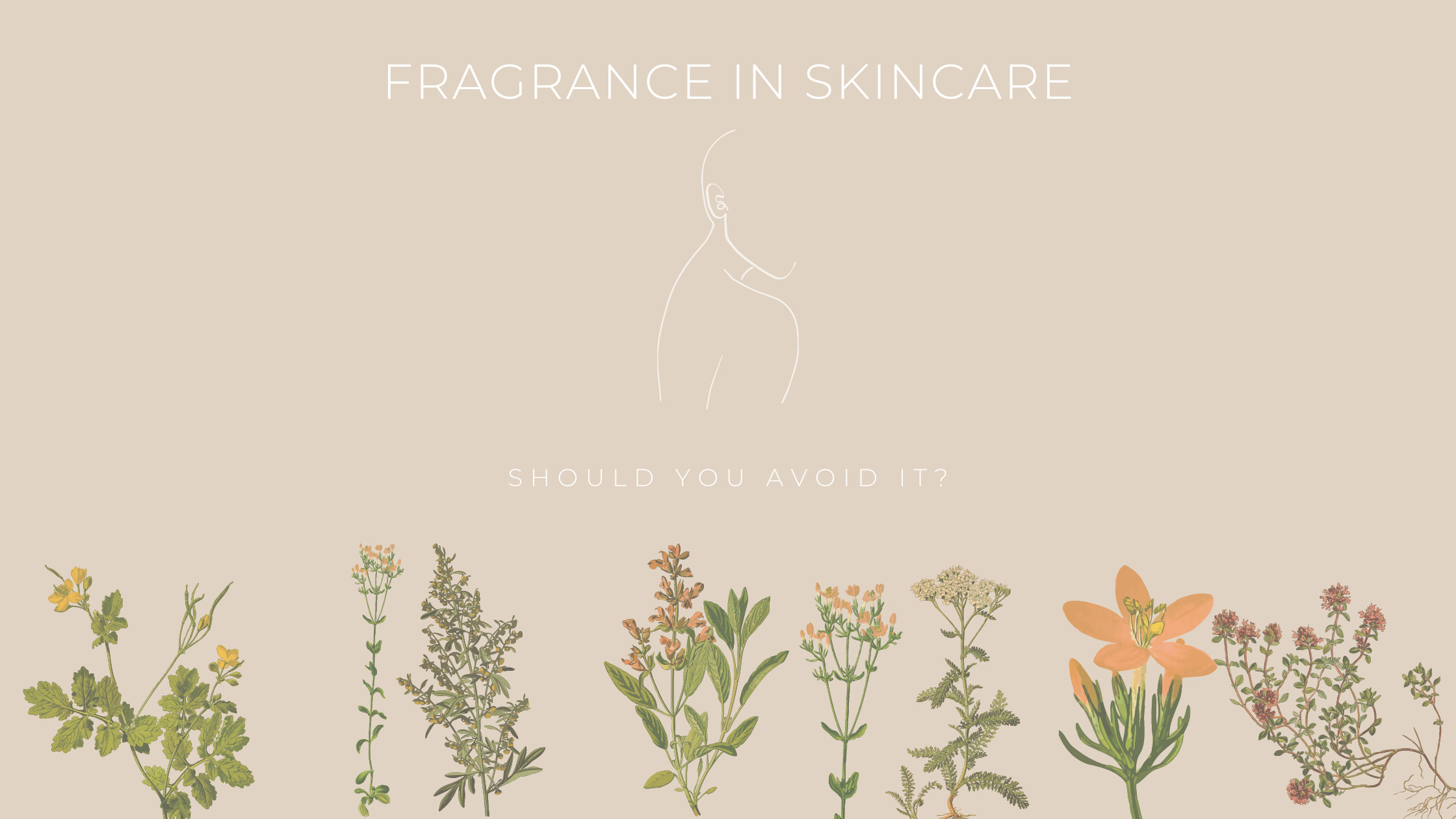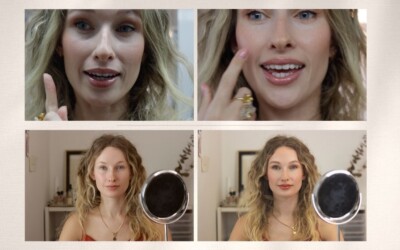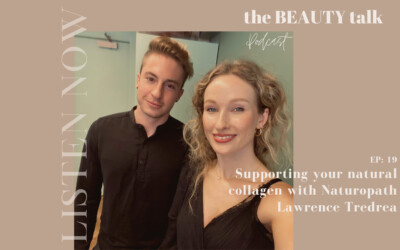Whether or not fragrance should be in skincare products has long been debated. Have you thought about this? Do your skincare products have a tonne of fragrance? Should you be worried? ( Honestly probably not if your skin is reacting ok to it!). In the last few weeks, I have noticed a LOT of discussion in the skincare community about the inclusion of fragrance in products; sparked by the launch of the Fenty Skin range, which happens to contain fragrance. A lot of experts are divided on the topic.
But first some basics:
What is fragrance?
fragrance
/ˈfreɪɡr(ə)ns/
noun
a pleasant, sweet smell.
“the fragrance of fresh-ground coffee”
a perfume or aftershave.
“our fine selection of classic fragrances for men and women”
Something that is added to products to smell good or mask bad odours.
Why is fragrance in skincare?
he simple answer is because we like it! Studies show that consumers like fragrance in their products, hence why it’s in the majority of them. However it also plays a role in marketing and selling a product to the consumer.
For example in-store, when you test skincare on the back of your hand, you always put it up to your nose right? Well, I do at least, and if the cream had a funky smell, you would be less likely to take it to the register. Fragrance is added to mask the smell of stinky but helpful ingredients.
Additionally fragrance elevates the experience of products, often making them feel more luxe. It also utilises one of our most powerful senses – smell. I’m sure most if not all of us have had some sort of deja vu triggered by a certain scent.
Fragrance has an express route to the areas of your brain where memories are stored (the amygdala and hippocampus for all you nerds out there). The Marketing guys are well aware of this phenomenon, so they use fragrance to remind you of happy memories and create a long-lasting scent relationship with a certain product or brand..
Is Fragrance safe?
Fragrance is a common reason for peoples skin irritations and allergic reactions because the ingredients in fragrance (and there are a lot of them) do have known allergens. But with that being said, it’s only a relatively small number of people that have problems with them. People with healthy skin and skin barriers will be unlikely to experience irritation issues.
Recognising Fragrance
If you have skin that doesn’t tolerate fragrance or have made a choice to avoid it, understanding how regulations and labelling work can help you make informed choices about the products you purchase.
From the FDA (U.S Food & Drug Administration) site
If a cosmetic is marketed on a retail basis to consumers, such as in stores, on the Internet, or person-to-person, it must have a list of ingredients. In most cases, each ingredient must be listed individually. But under U.S. regulations, fragrance and flavor ingredients can be listed simply as “Fragrance” or “Flavor.”
Even some products labeled “unscented” may contain fragrance ingredients. This is because the manufacturer may add just enough fragrance to mask the unpleasant smell of other ingredients, without giving the product a noticeable scent.
Unscented and fragrance-free
With the above information, know that unscented usually means that the product has no scent but probably contains chemicals and fragrances to mask the odours of the products’ ingredients.
Products labelled fragrance-free mean that there are no added ingredients for use of fragrance or masking odours. However, if a product has a particular ingredient to act as a skin benefit, and that ingredient has a scent, the overall fragrance-free product may have a smell to it. However it is usually very mild and unoffensive.
Also here is a list of fragrance ingredients that don’t often fall in the ‘fragrance’ label
|
Fragrance Parfum/Perfume/Aroma Linalool Citronellol Cinnamal Limonene Geraniol Eugenol Lavender oil (Lavandula angustifolia) Rose flower extract (Rosa damascena) |
Bergamot oil (Citrus bergamia) Ylang-ylang oil (Canaga odorata) Lemon (Citrus limon) Lime (Citrus aurantifolia or Citrus medica) Orange (Citrus sinensis) Tangerine (Citrus tangerine) Peppermint (Mentha piperita) Spearmint (Mentha spicata) Eucalyptus Cinnamon (Cinnamomum) |
Should I avoid fragrance even if I don’t have sensitive skin
It’s entirely up to you. If your skin is ok with fragrance, you have no reason to stop using that product. However I still think it’s a good idea to limit your use, or maybe at least not have every step in your skincare routine containing fragrance.
Fragrance reactions can happen over time and is the number one cause of contact dermatitis. People with any skin conditions like rosacea should avoid fragrance where at all possible.
Synthetic fragrance and Natural fragrance
I found this piece discussing the differences between synthetic and natural fragranceson Caroline Hirons site, by Dr Marko Lens, a friend of Hirons and founder of skincare brand Zelens. I thought it was a perfect description and I can’t think of a better way to write it so I figure you’re best off reading the original!
From Dr Marko Lens, founder of Zelens:
‘Synthetic fragrances contain chemicals that are not of a natural origin while natural fragrances contain ingredients only from a natural origin- basically a mixture of essential oils. Not all synthetic fragrances are bad and many of them contain essential oils. There has been a lot of negative publicity given to parabens, phthalates and synthetic musks used in synthetic fragrances. However, you can make a synthetic fragrance without these ingredients.
It is important to mention that synthetic fragrance does not necessarily cause more allergic reactions than natural fragrance. Both of them contain ingredients called allergens – substances that cause allergies. Almost all essential oils contain allergens and in my clinical practice I see more allergies due to the use of the mixtures of various essential oils than with the use of products containing synthetic fragrances.
Regarding fragrance and cytotoxicity (cell death): both synthetic and natural fragrances can be cytotoxic. However, I would be very careful when interpreting results from these tests since they are done in the lab using different types of human cells in vitro. For example, the product may be cytotoxic for human liver cells, but that does not mean it is the same for human dermal cells. Also, results of in vitro tests (petri dishes) ideally should be validated in vivo (on people).’
The bottom line
In summary, for me there is no definitive yes or no answer to the fragrance debate. However on general principle I do think it’s a solid idea to avoid fragrance where possible, especially in ‘leave on face’ products. I am less concerned with products designed for use on the body or hair as these areas aren’t quite as delicate as your face.
Personally, I am sensitive to actual perfume type fragrance. (may another point of discussion) If I spray too much or try a new one, I can give myself a terrible headache.
Finally, here are a few fragrance-free brands I like:
Curel
Avene
Larochy posay
Cerave
Let me know if you have tried the above brands and what you think of them… I would love to hear your thoughts on this topic in general!







